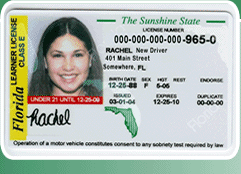By John Polivick, Esq.
With the sweeping decision on DOMA (Defense of Marriage Act) by the Supreme Court on June 26, 2013, gay couples are now entitled to all the immigration benefits heretofore only given to straight couples. Moreover, states that prohibit same sex marriage can’t stop same sex immigration because, as Florida Governor Rick Scott astutely pointed out, immigration law is federal law.

But what’s it all about? Edith Windsor and Thea Spyer wed in Ontario, Canada, in 2007. When Spyer died in 2009, she left her entire estate to Windsor. Windsor sought to claim the federal estate tax exemption for surviving spouses, but was barred from doing so by §3 of the federal Defense of Marriage Act (DOMA) which amended the Dictionary Act—a law providing rules of construction for over 1,000 federal laws and the whole realm of federal regulations—to define “marriage” and “spouse” as excluding same-sex partners
Edith Windsor challenged the law after her partner died and she was forced by the IRS to pay $363,053 in estate taxes. Had her partner/husband been a man, she wouldn’t have had to pay the taxes. The Supreme Court said this violates the equal protection clause of the constitution, and struck down the law. The result is that same sex couples are now entitled to federal benefits, such as immigration visas, green cards, and citizenship.
Currently there are twelve states plus the District of Columbia that specifically recognize gay marriage. And with the Supreme Court decision on proposition 8, California will become the 13th state to recognize same sex marriage. Couples who get married or who plan on getting married in one of those jurisdictions can apply for a visa, and it should be granted.
A K-1 visa is for a fiance, while a K-3 visa is for a person who is already married to a U.S. citizen or permanent resident. Lately, the USCIS has been issuing CR-1 (Conditional Resident) or IR-1 (Immediate Relative) visas instead of K-3 visas, and base them on the length of the marriage. For marriages less than 2 years the spouse receives a CR-1 Visa while for marriages two years or longer the IR-1 will be given.
Clearly, now that DOMA is no longer the law of the land, gay couples are entitled to equal rights under all federal law, including federal immigration law. This means that an individual from another country who is legally married to a U.S. citizen or permanent resident is entitled to immigrate under the CR-1, IR-1 or K-3 visa.
Same results for a fiance of a U.S. citizen or permanent resident, who would be entitled to receive a K-1 visa. And the K-1 visa eventually leads to citizenship if so desired. Unmarried children of K visa holders under 21 are also eligible to immigrate to the U.S. with their parent.
For example, a couple gets married in New York, which specifically allows gay marriage. One partner is a U.S. citizen and New York resident, while the other is a citizen of another country, let’s say Canada (or any country for that matter), with a ten year old child. The Canadian citizen is now allowed to immigrate to the U.S. under a visa for spouses of U.S. citizens. And the child is allowed to immigrate with a K-4 visa. Prior to the Supreme Court decision in U.S. vs. Wilson (DOMA), this was not possible. Now it is the law of the land.
But what about a couple who lives in a state such as Texas, which doesn’t allow gay marriage? Could a couple who lives in a state like Texas travel to one of the states that allow gay marriage, such as New York, get married there, go back home and then apply for a visa?
In my legal opinion, yes. There is nothing any state can do to prevent issuance of a visa because immigration law is exclusively federal law. As long as the marriage is legal where it took place, the foreign citizen should be allowed to immigrate to the U.S., regardless of what state he or she will live in. Residency requirements, if any, must be met, and I will discuss that in an upcoming blog.
Of course, these are uncharted waters, and that’s why I use the word “should.” Is it possible that the feds will refuse to issue K visas to people who want to live in those states that do not allow same sex marriage? It’s possible because politics are involved, but in my opinion, highly unlikely. Any such refusal will immediately be challenged in court, and could end up before the U.S. Supreme Court again.
Further, Secretary of Homeland Security Janet Napolitano confirmed that any legally valid marriage of a U.S. citizen would be recognized for immigration benefits. Obama is apparently 100% in support of same sex marriage as well. So, even if you live in Texas, but get married in a state that recognizes same sex marriage, your partner should be able to immigrate to the U.S.
One caveat: Section 2 of DOMA allows States to refuse to recognize same-sex marriages performed under the laws of other States. See 28 U. S. C. §1738C. That section was not challenged in U.S. vs. Wilson and therefore is still law. So if you live in states like Texas, it will not recognize your marriage for the purposes of state, not federal, law.
Accordingly, even if you obtain a visa for yourself or your spouse, you still have to deal with state law as far as it reaches. So if you pass away in a state that doesn’t recognize gay marriage without leaving a valid will, chances are your estate will not pass to your partner. That’s because that state law (such as Texas) doesn’t recognize your spouse, even though federal law does. Of course, you can overcome this by simply having a valid will. And there are other considerations in the state/federal law dichotomy that you must take into consideration if you live in a state that doesn’t recognize same sex marriage.
If you and your partner are interested in U.S. immigration policy, consult with an immigration attorney.
If you want to read the entire decision on the DOMA case, U.S. vs. Wilson, you can find it at http://www.supremecourt.gov/opinions/12pdf/12-307_g2bh.pdf












 u thought our unpopular governor here in Florida couldn’t outdo himself, he did. On Tuesday, June 5, 2013, Rick Scott vetoed a bill that would have given temporary drivers licenses to the the DACA children (Deferred Action for Childhood Arrivals). The bill passed the Florida Senate 36-0, and the house 115-2. This bill dealt with children who came to the U.S. before their 16th birthdays, but Mr. Scott feels it’s ok to punish them. I had to read the article several times in order to follow his logic. But I still don’t. If this guy really wants to be re-elected governor again, he is doing all the wrong things. And he just riled the feathers of another large group of resident DACA children, as well as their friends, families and associates. Looks like Charlie Christ will have a cake walk in the 2014 election, unless Senator Nelson decides to run for governor as well, and he says he won’t.
u thought our unpopular governor here in Florida couldn’t outdo himself, he did. On Tuesday, June 5, 2013, Rick Scott vetoed a bill that would have given temporary drivers licenses to the the DACA children (Deferred Action for Childhood Arrivals). The bill passed the Florida Senate 36-0, and the house 115-2. This bill dealt with children who came to the U.S. before their 16th birthdays, but Mr. Scott feels it’s ok to punish them. I had to read the article several times in order to follow his logic. But I still don’t. If this guy really wants to be re-elected governor again, he is doing all the wrong things. And he just riled the feathers of another large group of resident DACA children, as well as their friends, families and associates. Looks like Charlie Christ will have a cake walk in the 2014 election, unless Senator Nelson decides to run for governor as well, and he says he won’t.